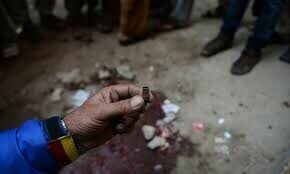THE Saudi authorities have finally announced what many had been fearing ever since it became clear that Covid-19 was not going to go away anytime soon: this year’s Haj has been scaled back considerably due to the threat of the coronavirus, and only Saudis and foreigners residing within the kingdom will be able to perform the pilgrimage and associated rites. On Tuesday, the Saudi authorities announced that only 1,000 people will be performing Haj this year. This is a far cry from the 2m or so believers that flocked to the holy places year after year from the four corners of the globe to participate in the pilgrimage — one of the key pillars of Islam.
Though there is understandable disappointment over the move, it was the best possible solution in the given circumstances. While it is true that men and women from across the world save up all their lives to be able to perform the pilgrimage at least once, the circumstances this year are far from normal. Indeed, Haj rituals have been curtailed in the past, particularly in times of antiquity and mainly due to pestilence or violence, but this is perhaps the first time in the modern era that the pilgrimage has been scaled back so drastically. Masjid Al Haram was closed off to believers for several days in 1979 when Salafi militants occupied it during the siege of Makkah, but this was just after Haj had concluded. However, at a time when social distancing is essential, there was no other option but to limit the pilgrimage as ensuring that hundreds of thousands of people keep a safe distance from each other is next to impossible. Whether it is performing tawaf inside the Haram, or other key rituals at Arafat, Mina etc, people mingling in such close proximity makes it very difficult to observe SOPs. Even in more ‘normal’ times, controlling such large crowds is a considerable challenge for the authorities, as numerous fires and deaths caused by overcrowding at the jamaraat over the years have shown.
The scaling back of Haj is a sobering moment for the Muslim world. During the pandemic, mosques around the world, including the two holy mosques in Makkah and Madina, have had to be closed off for mass prayers, and now with Haj being affected, it should serve as a moment of reflection for the Muslim world. Indeed, Haj is a symbol of unity where Muslims of all nationalities and colours gather, and where — temporarily — the differences of sect and school of thought melt away. This same spirit of unity is needed, especially with Eidul Azha coming up, to prevent the coronavirus from spreading further. If SOPs are followed, life will be able to return to normal sooner rather than later. Those who wished to proceed for Haj this year will hopefully be able to perform the pilgrimage in 2021.
Published in Dawn, June 24th, 2020










































